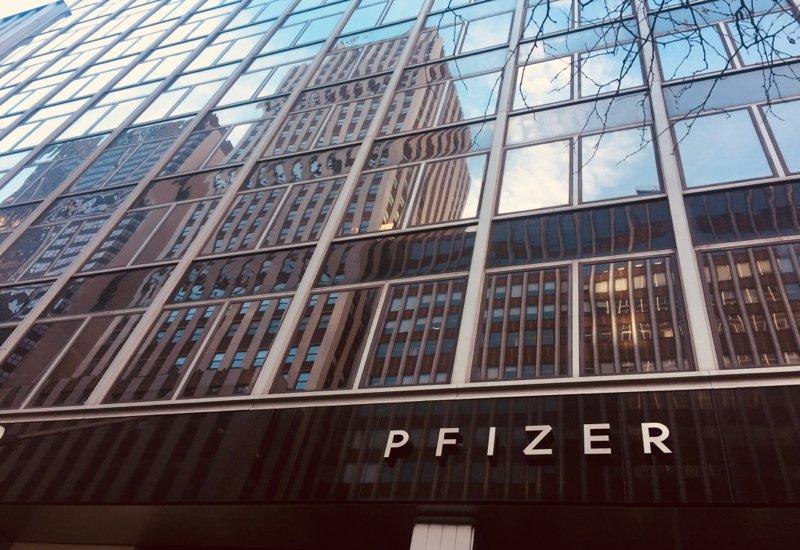
The mammoth consumer health deal Pfizer and GlaxoSmithKline struck last December is finally sealed. But things are looking markedly different at Pfizer than they did seven months ago—and that may not be a good thing, analysts say.
Earlier this week, the New York drugmaker agreed to merge its off-patent drugs business, dubbed Upjohn, with Mylan, fulfilling a years-long prophecy that the company could eventually split into two pieces along the patent protection line.
But even if investors have had plenty of notice about the idea, they haven’t exactly cheered the announcement. After closing Friday at more than $ 43, Pfizer shares have since dropped to the $ 38 range.
RELATED: Pfizer’s big split is finally here, thanks to a giant generics merger with Mylan
Without its consumer health business and its established products unit, the New York drugmaker will be doubling down on branded prescription drugs. And in the pharma giant’s remaining division, “both revenue and EPS growth will be higher” while the size of the top line itself—and earnings figures, too—will shrink, Wolfe Research analyst Tim Anderson wrote in a Monday note to clients.
“By our preliminary modeling, EPS growth rises by a couple of percentage points annually on average,” he added, noting that “Pfizer will be a smaller company, growing faster.”
But on the flip side, the move cuts into Pfizer’s scale and diversity and significantly cut its free cash flow, Moody’s SVP Michael Levesque wrote this week. And when Pfizer and GSK spin off the consumer joint venture in a few years as planned, those cuts will only get deeper.
For now, though, it’s not just revenue and earnings that’ll feel the effects of Pfizer’s slim-down. Anderson foresees a “sum of the parts” problem around the Upjohn move, too.
“If markets act rationally, they should revalue Upjohn at a lower level compared to when Upjohn was left within the Pfizer parent,” he wrote, warning that Pfizer’s shares “may drift lower.” They opened Thursday at $ 38.31, down from Wednesday’s close of $ 38.48—and Friday’s close of $ 43.10.
RELATED: GSK, Pfizer go for radical makeovers with giant consumer combo destined for spinoff
Pfizer, meanwhile, was upbeat about the consumer deal’s wrapup on Thursday. CEO Albert Bourla touted the deal’s significance in furthering “Pfizer’s evolution to be a more focused, global leader in science-based, innovative medicines that delivers breakthroughs that change patients’ lives.”
